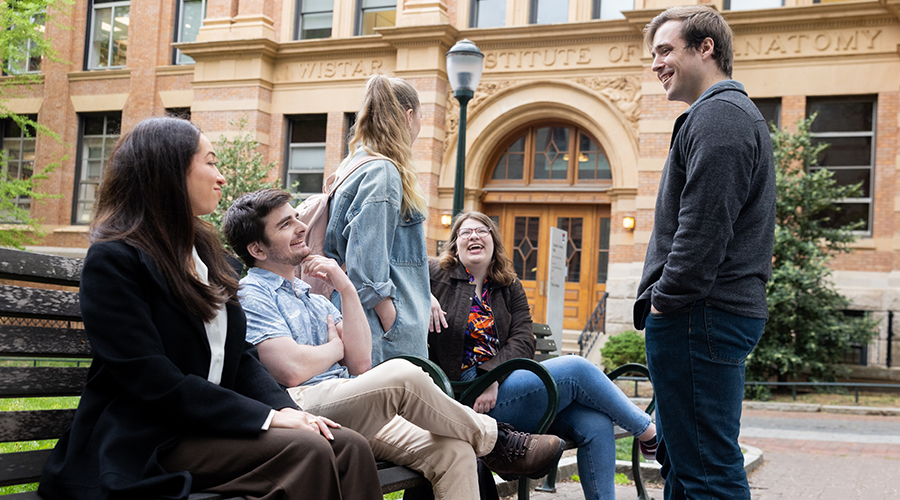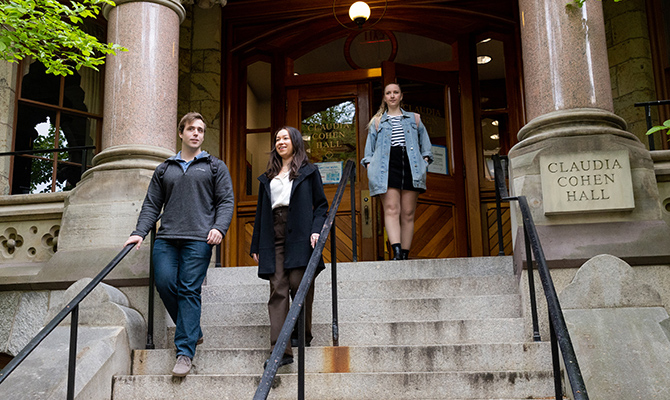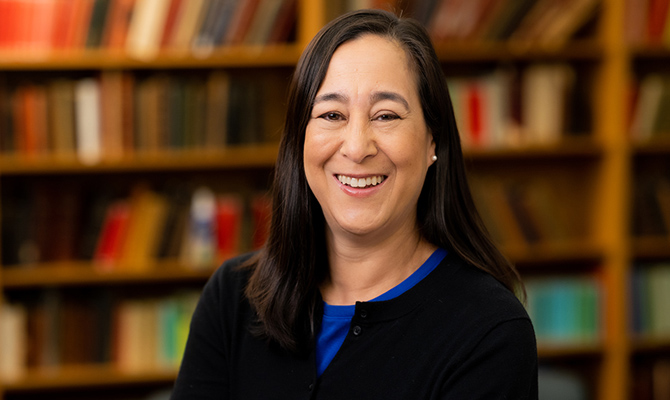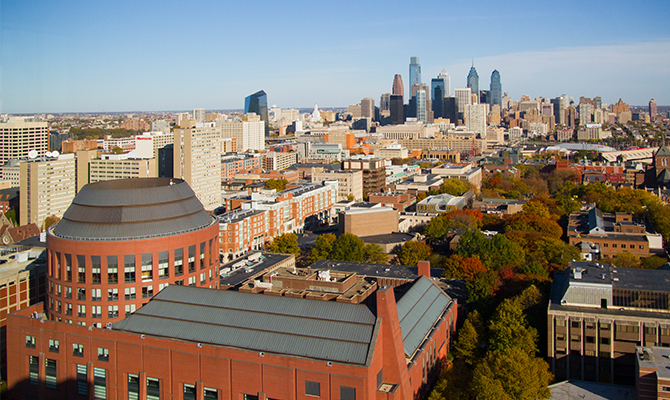
When studying in the Classical Studies Post-Baccalaureate Program, you have access to the wealth of scholarly and career resources provided by Penn’s illustrious Classical Studies Department and the university as a whole. Below, we list a few of the events, organizations, and academic resources you can draw on in your time at Penn.
Online resources
The Classical Studies Post-Baccalaureate Program Canvas site is a virtual community platform where you and your classmates can reference the calendar of events, access various online resources, and participate in discussion boards.
Classical Studies Proseminar
Our biweekly Classical Studies Proseminar is a series of brown-bag lunches in which faculty members and current graduate students meet with students to talk about their research; their path towards their current positions in classical studies, ancient history, and archeology programs; and give advice about graduate school and careers. At the Proseminar, you receive group advising about career planning and application to graduate schools.
Center for Ancient Studies
The Center for Ancient Studies at the University of Pennsylvania strives to bring together students and faculty, as well as members of the greater Philadelphia community, who share a passion for the ancient world, through the promotion and support of events pertaining to pre-modern societies. Penn has long been acclaimed for its extraordinary resources in the study and teaching of the ancient world. The School of Arts and Sciences is home to an unusual number of distinguished scholars who specialize in various aspects of the ancient Old and New Worlds—their languages, history, archaeology, anthropology, art history, philosophy, economy, politics, and sciences, to name only a few—and the Penn Museum houses a renowned collection of artifacts from the Americas, Asia, Polynesia, China, Africa, Egypt, the Ancient Near East, and the Greek, Roman, and Etruscan Worlds.
Penn Museum
- The University of Pennsylvania Museum of Archaeology and Anthropology advances understanding of the world's cultural heritage through its research, collections, exhibitions, and educational programming.
- Applied Science Center for Archaeology (MASCA): MASCA is the scientific division of the University of Pennsylvania Museum. Its research focuses on the application of modern scientific techniques that will aid the interpretation of archaeological contexts and the materials recovered from those contexts, during both current excavations and past ones.
- Many Classical Studies Post-Baccalaureate Program students go beyond frequent visits to become museum volunteers and assistants. Some have worked as docents, in the mapping lab or in the conservation lab with curators.
Departments and graduate groups
- Classical Studies at Penn encompasses all aspects of ancient Greek and Roman culture and its influence through the Middle Ages and Renaissance up to the present day: not just the ancient languages and literatures, but also material culture, history (political, social, economic and intellectual), philosophy, religion, mythology, and the classical tradition.
- The Graduate Group in Ancient History is a program that coordinates a curriculum encompassing the whole of the ancient history of the Near East and the Mediterranean Basin. It has as its aim the preparation of candidates for the degree of Doctor of Philosophy.
- The major strength of the Department of Anthropology at the University of Pennsylvania is its high quality across all four fields: Archaeology, Cultural, Linguistic and Physical. Members of the National Academy of Sciences, the American Academy of Arts and Sciences, and holders of major offices in the leading professional societies have come from each of the department's quadrants.
- The Graduate Group in the Art and Archaeology of the Mediterranean World trains students for careers in the art and archaeology of Classical and Near Eastern Civilizations. Drawing on the vast resources of the University of Pennsylvania Museum of Archaeology and Anthropology, AAMW incorporates fieldwork, museum internships, and university instruction into a flexible interdisciplinary program leading to the MA and PhD.
- The Program in Comparative Literature & Literary Theory at Penn is a dynamic and congenial intellectual community that brings members together through common, core interests. They offer undergraduate and graduate programs for the study of literature through various disciplinary and critical perspectives, and the study of cultural history through the production of representations.
- The Department of Linguistics at the University of Pennsylvania is the oldest modern linguistics department in the United States, founded by Zellig Harris in 1947. The department is known for its interdisciplinary research, spanning many subfields of linguistics as well as areas of cognitive science, and integration of theory, corpus research and fieldwork.
- The Department of Religious Studies at the University of Pennsylvania offers undergraduate and graduate degrees in a variety of specializations within the study of religion. With particular strengths in the study of Christianity, Judaism, Islam, and the African-American religious experience, the department emphasizes descriptive, historical, critical, and theoretical approaches to the study of religion.
Housing information
Full-time students can apply to live on campus, and there are a variety of options available. For more information please visit the Residential Services website.






